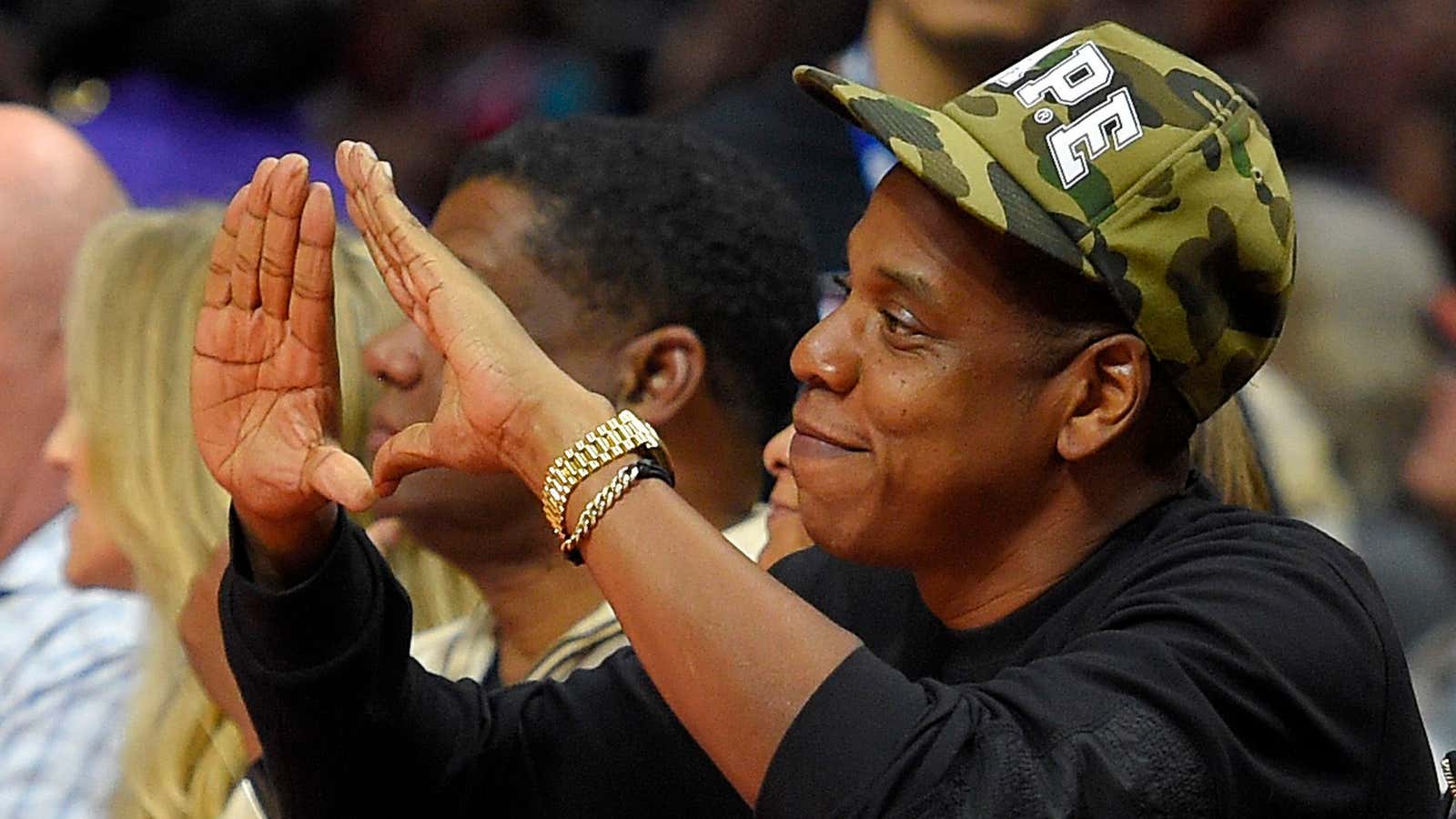The rapper Jay Z once remarked on whether he should rhyme to the best of his ability or sell as many records as possible by comparing himself to other hip-hop artists well-loved by purists but who don’t sell much:
If skills sold truth be told, I’d probably be
Lyrically Talib Kweli
Truthfully, I wanna rhyme like Common Sense,
But I did five mill’, I ain’t been rapping like Common since
In fact, Jay Z never really abandoned his lyricism—it’s just that audiences want the hits. The artist doesn’t perform many of his more introspective or complex album cuts because casual fans wouldn’t know them. But for the hardcore fan, Jay Z tonight and tomorrow will play two concerts in New York featuring just his B-sides and album cuts.
The only way to get tickets was to join his newly-relaunched music service, Tidal, and create a playlist. This concert and much of Tidal’s strategy since relaunch—such as having no free tier and expecting people to pay a premium for higher-quality audio—has been met with widespread derision. So much so that Jay Z took to Twitter to respond to his critics.
But there is method to Jay Z’s madness. In the digital era, the value of each song has fallen through the floor; streaming music companies pay artists pennies per play. Yet it’s not like people have stopped going to concerts; as music becomes more ubiquitous and commoditized, artists make most of their money via touring and licensing. Events like Jay Z’s B-sides concerts bring the music that fans care most about back to the center of the picture. Stans like myself have been waiting to hear these Jay Z songs played live for decades.
What Jay Z is trying to do is build a community around the music—with the artist at the heart of it. You can see this in Tidal’s posting of exclusives like an acoustic Jack White concert and new Beyoncé songs, even though these quickly made their way elsewhere. Tidal generated goodwill by streaming Prince’s recent concert following the race riots in Baltimore for free.
In effect, Tidal is being pitched as an artist-led social network based around music—an idea that failed for Apple under Steve Jobs, but the concept is reportedly being revived again for a launch soon under Beats Music, with artists having the ability to post updates to fans.
Tidal remains more expensive than its rivals—but like Apple, it’s pitched as a premium product. In Apple’s business model, you buy a laptop or a phone for a premium price but you get sleek, high-quality design and constant free updates in addition to informal membership in the tribe of Apple fanatics. Jay Z’s bet is that he can build a similar tribe of fanatics—the kind who flock to concerts of nothing but deep cuts—around Tidal.
The question, of course, are there enough fans willing to pay to join Jay Z’s community to make it a real business?
